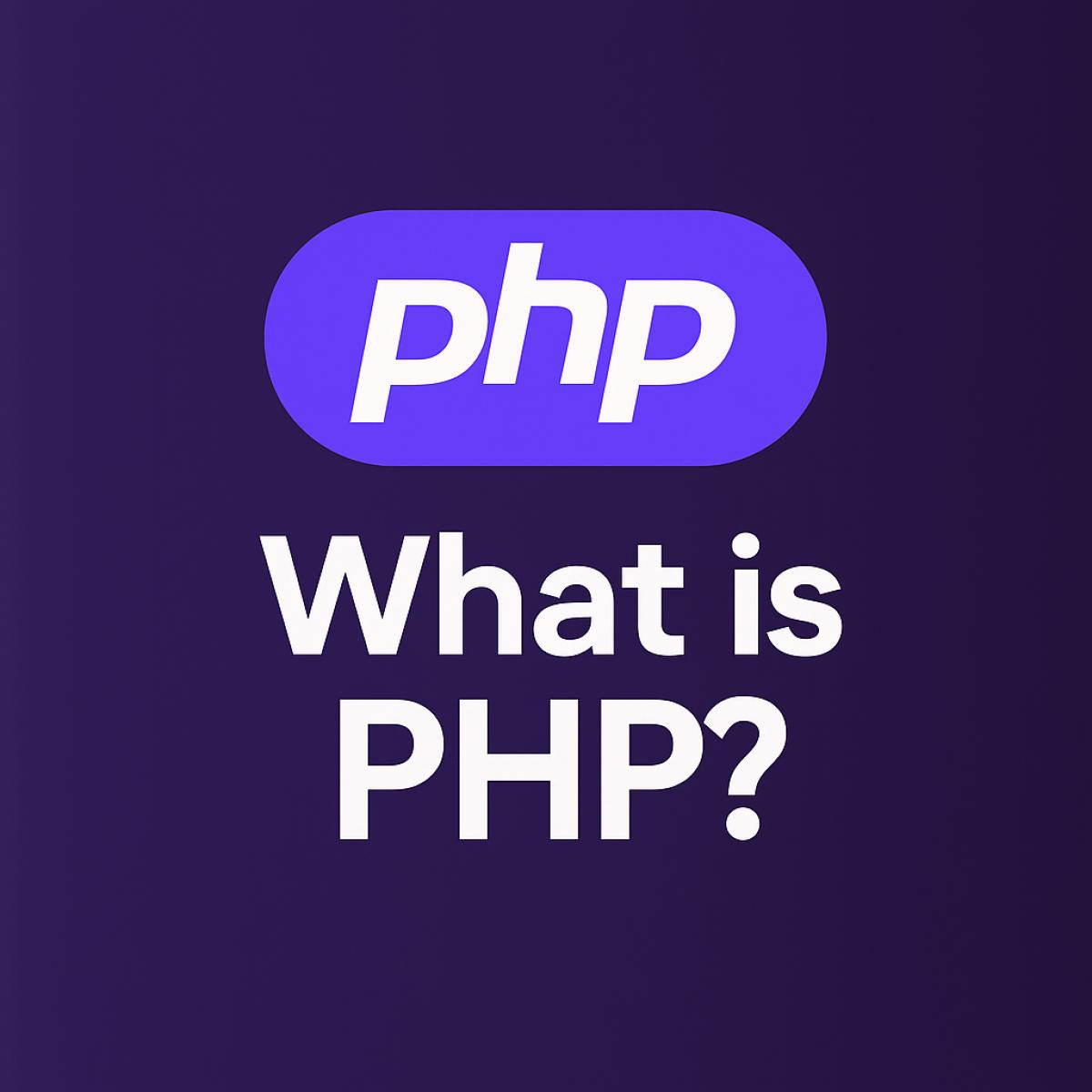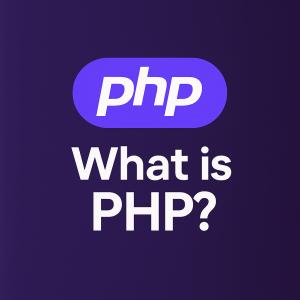What is PHP? Your Essential Guide to Web Development with PHP
Are you curious about how the websites you visit every day come to life? While various programming languages contribute to the internet's fabric, one stands out for its pervasive influence: PHP. PHP, which originally stood for Personal Home Page but now recursively stands for PHP: Hypertext Preprocessor, is a widely-used open-source general-purpose scripting language that is especially suited for web development and can be embedded into HTML. For decades, PHP has been the backbone of millions of websites, from small blogs to massive social media platforms. In this article, we'll dive deep into the world of PHP, exploring its journey, its capabilities, and its enduring relevance in the ever-evolving landscape of web development.
The Journey of PHP: From Personal Home Page to Web Powerhouse
The story of PHP begins in 1994 with Rasmus Lerdorf, who created a set of Perl scripts to maintain his personal homepage. He released these scripts as "Personal Home Page Tools" in 1995. Over time, the project evolved, and with contributions from many developers, it transformed into the robust language we know today. The philosophy behind PHP was always about making web development easier and more accessible. It was designed to be simple to learn, quick to deploy, and highly integrated with web servers. Early versions were procedural, but as the web grew more complex, PHP adapted, introducing strong object-oriented programming (OOP) features.
Strengths of PHP: Why Developers Love It
PHP's enduring popularity isn't accidental. It boasts several compelling advantages that make it a favorite among web developers:
- Ease of Use: PHP has a relatively gentle learning curve, especially for those familiar with C-like syntax. You can get a simple PHP script up and running very quickly.
- Large Community and Rich Ecosystem: With millions of developers worldwide, PHP has an enormous community. This means abundant resources, tutorials, forums, and libraries available to help you solve almost any problem.
- Extensive Database Support: PHP seamlessly integrates with a wide array of databases, including MySQL, PostgreSQL, Oracle, SQL Server, and more, making it ideal for data-driven applications.
- Cost-Effective: As an open-source language, PHP itself is free. Many of its tools, frameworks, and associated software are also open source, reducing development costs.
- Platform Independence: PHP runs on various operating systems like Windows, Linux, Unix, and macOS, and is compatible with most web servers, including Apache and Nginx.
- Excellent Performance (especially with newer versions): Modern PHP versions (like PHP 7.x and 8.x) offer significantly improved performance, making it highly competitive with other languages.
- Object-Oriented Programming (OOP) Capabilities: PHP fully supports object-oriented programming paradigms, including classes, objects, inheritance, interfaces, and traits. This allows for more modular, maintainable, and scalable code, especially crucial for large-scale web development projects.
Weaknesses of PHP: Areas for Improvement
While PHP offers numerous benefits, it's also important to acknowledge its perceived weaknesses:
- Historical Inconsistencies: Older versions of PHP had some function naming and parameter order inconsistencies, which could be confusing for newcomers. However, newer versions have significantly improved consistency.
- Security Concerns (Perception vs. Reality): Due to its popularity and the ease with which beginners can write simple scripts, PHP has sometimes been associated with security vulnerabilities. In reality, security largely depends on the developer's practices. Modern PHP frameworks provide robust security features, but poor coding can lead to exploits in any language.
- Resource Consumption: While performance has greatly improved, poorly optimized PHP applications can still consume more server resources compared to compiled languages.
- Not Ideal for Desktop Applications: PHP is primarily designed for web development and server-side scripting. It's not typically used for building desktop GUI applications.
Popular PHP Frameworks: Building Robust Web Applications with Ease
To accelerate development and enforce best practices, PHP developers often utilize frameworks. These frameworks provide a structured environment, reusable components, and tools that simplify complex tasks. Some of the most popular PHP frameworks include:
- Laravel: Arguably the most popular PHP framework today, Laravel is known for its elegant syntax, robust features, and comprehensive ecosystem, making it a favorite for modern web development.
- Symfony: A highly flexible and robust framework, Symfony is often chosen for large, complex enterprise-level applications due to its modular architecture and strong community support.
- CodeIgniter: A lightweight and fast framework, CodeIgniter is known for its simplicity and ease of use, making it suitable for beginners and small to medium-sized projects.
- Zend Framework (Laminas Project): A powerful and extensible framework, Zend Framework (now part of the Laminas Project) is often used for highly customized enterprise solutions.
- Yii: A high-performance component-based PHP framework for rapidly developing large-scale web applications.
Applications of PHP: Powering the Modern Web
The versatility of PHP means it powers a vast array of web applications. Here are some key areas where PHP shines:
- Content Management Systems (CMS): PHP is the driving force behind the world's most popular CMS platforms, including WordPress (which powers over 40% of all websites!), Drupal, and Joomla.
- E-commerce Platforms: Many leading e-commerce solutions like Magento, WooCommerce (a WordPress plugin), and OpenCart are built with PHP, enabling online stores of all sizes.
- Social Networking Sites: Early versions of Facebook were largely built with PHP, demonstrating its capability to handle massive user bases.
- APIs (Application Programming Interfaces): PHP is frequently used to develop RESTful APIs that allow different software applications to communicate with each other.
- Web Applications: From custom business applications to online forums and reservation systems, PHP is a common choice for building dynamic web experiences.
Conclusion: PHP's Enduring Legacy in Web Development
Despite the emergence of many new programming languages, PHP has consistently adapted and evolved, remaining a dominant force in web development. Its ease of use, robust object-oriented features, vast community support, and the sheer number of existing applications built with it ensure its continued relevance. Whether you're building a simple blog, a complex e-commerce site, or a scalable enterprise application, PHP offers a mature and powerful ecosystem to bring your web development ideas to life. Its journey from a personal homepage tool to a hypertext preprocessor powering a significant portion of the internet is a testament to its flexibility and enduring utility. As web technologies continue to advance, PHP continues to innovate, ensuring its place at the forefront of server-side scripting for years to come.




